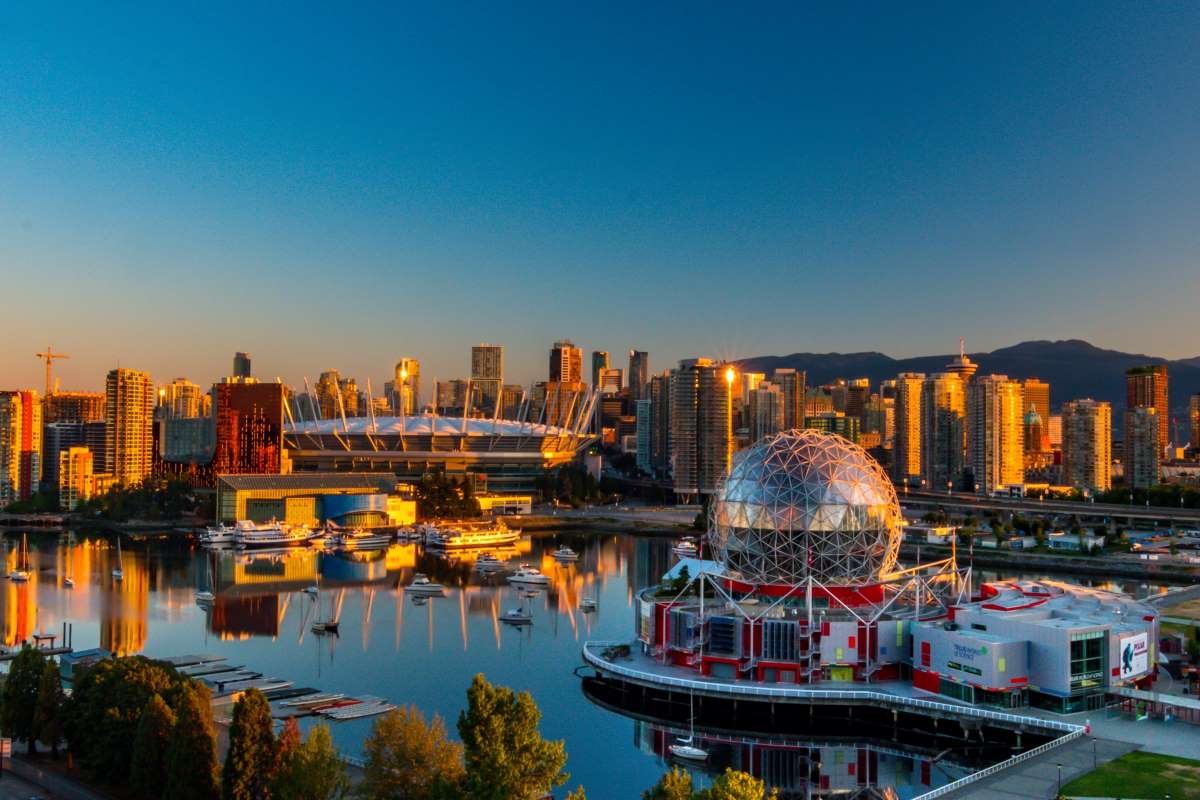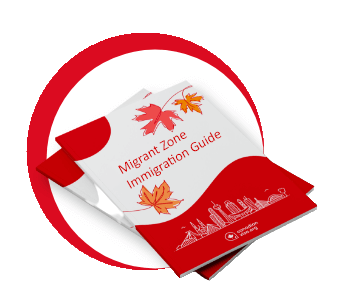British Columbia is one of the largest, most recognized provinces in Canada. Its fantastic infrastructure and opportunities for education, work and a high quality of life make it a hot spot for foreign nationals to find a new home or the next step in their career.
About British Columbia

As one of the most beautiful provinces in Canada and one of the top tourist spots, British Columbia offers some of the last truly wild country in North America as well as some of the most exciting cities. With a population of over 4.5 million people, most residents tend to live in Vancouver and the capital city, Victoria.
British Columbia was populated by multiple First Nations tribes for over 10,000 years before the British established Fort Victoria in 1843. In 1871, it became the province of British Columbia, one of the initial six Canadian provinces.
Today, British Columbia is one of the most industrious and populous provinces in Canada. Home to one of Canada’s major cities, Vancouver.
Where is British Columbia on the map?
Lying along the Pacific Northwest coast of Canada, British Columbia covers 944,735km², with around 27,200 kilometres of rugged coastline and thousands of small islands. British Columbia is the westernmost province in Canada, bordering Alberta on its eastern side, Yukon in the North and the Nortwest Territories on its northeast.
75% of the province is mountainous and impenetrable in many places with two-thirds of the province remaining underpopulated and undeveloped. With varied climates, you can expect to find rainforests along the coast, sub-arctic winters further north, and mild weather in the interior.
Economy and Industries
With so much undeveloped land, British Columbia has become a prime destination for the film industry, with vast areas free of power lines, roads, fences, or any other modern features to spoil the shot. British Columbia has the third-largest film industry in North America, right after Hollywood, and New York and is often referred to as, “Hollywood North.”
This province is blessed with an abundance of natural resources, meaning that the most lucrative industries are agriculture, fishing, and mining. As a strong and growing economy, job opportunities open up often in construction, manufacturing, and education.
As a result, British Columbia's in-demand occupations list falls across a wide variety of industries and experience levels. With so many vast industries and opportunities, the province needs those from all kinds of backgrounds to fill the gaps in the market. Learn more about which jobs are in highest demand in British Columbia here.
Climate/ Weather in British Columbia
According to Weatherspark.com, British Columbia’s summers are hot, sunny and humid and winters are frigid, snowy and rainy.
The warmer season generally starts around mid-June and ends around late October. During this time, the hottest month is July when daily highs reach 28°C and lows come to around 11°C.
The colder season in British Columbia starts around November and ends around April. In winter, temperatures reach lows around -21°C and highs of 7°C.
The temperatures vary wildly depending on the city you live in so it’s always worth looking into the city you’re interested in moving to.
Cost of living in British Columbia

The cost of living in British Columbia will differ depending on whether you choose to live in rural areas or major cities. The province does have the highest living expenses in Canada but also boasts some of the most fantastic schools and comprehensive healthcare cover at the government’s expense.
The average monthly expenses in four major cities in British Columbia are as follows:
| Average Cost of Living excluding rent | Vancouver | Victoria | Surrey | Burnaby |
|---|---|---|---|---|
| Single Person | $1,325.94 | $1,287.93 | $1,222.60 | $1,156.59 |
| Family of Four | $4,895.37 | $4,715.79 | $4,330.85 | $4,202.12 |
While rent does wildly fluctuate based on the area you’re in and the type of property you’re renting, here’s a breakdown of the average monthly rent for a single- and three-bedroom apartment in British Columbia
| Rent per month (City Centre) | Vancouver | Victoria | Surrey | Burnaby |
|---|---|---|---|---|
| Single-bedroom apartment | $2,437.40 | $1,993.18 | $1,694.44 | $2,100.00 |
| Three-bedroom apartment | $4,486.05 | $3,388.89 | $3,225.00 | $4,456.33 |
While the cost of living in British Columbia is relatively high, so are the salaries. Here are the average salaries in some of British Columbia’s cities:
| Average Monthly Salary (After Tax) | |||
|---|---|---|---|
| Vancouver | Victoria | Surrey | Burnaby |
| $4,754.89 | $4,751.06 | $5,127.64 | $4,669.25 |
Immigration/Dedicated Visa
The majority of specific visas and immigration programs for British Columbia can be acquired through the British Columbia Provincial Nominee Program (BC PNP). The BC PNP has several categories based on the leading demands of the province. The categories are broken down as follows:
| British Columbia PNP Categories |
|---|
| BC Express Entry Stream |
| BC Skills Immigration Stream |
| BC Entrepreneur Stream |
| BC Tech Pilot |
Find out more about how to move to British Columbia with the BC PNPs here.

Demographics
The majority of British Columbia’s population is of English, Irish and Scottish descent, with English remaining the official language. British Columbia has the highest percentage of minorities in Canada and 4.8% of the population is made up of aboriginal people.
Strangely, British Columbia is one of the few places in Canada where the majority of the population admit to no religious affiliation at all (agnostic, atheist, or undecided). Of those who do, most are Protestants (45%), with Catholics making up around 18%.
Almost half of the entire population live in and around Vancouver, or on Vancouver Island. The mainland is sparsely populated, mostly by aboriginal people. There are a large number of other ethnic groups from all over the world due to frequent labour shortages.
Education

British Columbia is especially dedicated to providing quality education. The province boasts numerous research-based universities like the University of British Columbia, the University of Victoria and the British Columbia Institute of Technology that offer world-class educational opportunities.
The province currently has 25 publicly-funded post-secondary learning institutions, including 4 research universities, 7 teaching universities, 11 colleges, and 3 provincial schools, as well as one aboriginal college.
Major Cities
British Columbia is home to several of the largest, most vibrant cities in Canada. One of the fantastic aspects of this province is the wide variety of wonderful environments all close together. The major cities in British Columbia are as follows:
Vancouver
The largest city in British Columbia and the third-largest in Canada, Vancouver is an international hub of business, culture and industry. Vancouver is often touted as the home of the Canadian film industry and is a hot spot for international immigrants and travellers due to its abundance of jobs, comfortable living and stellar infrastructure. Here’s a full breakdown of what life in Vancouver looks like.
Victoria
As the province’s capital, Victoria provides the same fantastic culture and infrastructure as the larger cities without the intensity of living in a large city. Victoria is home to much of Canada’s most famous historical sites and Canada’s history is present in every element of the city. Find out more about life in Victoria here.
Surrey
Sitting right by the Canada-United States border, Surrey is the second largest city in British Columbia, despite being part of the Vancouver metropolitan area. This city is primarily suburban, making it a fantastic space to set up your new life in Canada relatively cheaply without having to be too far from the opportunities of the big city.
Things to do in British Columbia

There are numerous museums, theatres, and exhibitions, mostly in Vancouver, however, the main attractions are the many outdoor opportunities. British Columbia is one of the last frontiers left in North America, and one of the few places where people can have a true wilderness experience. Many lakes and rivers are only accessible by bush pilots in small, very rugged aircraft. Hiking, camping, hunting, and wildlife viewing are major activities.
British Columbia offers a great opportunity for immigrants. This is due to the many work opportunities, rich culture, and resources, growing community, and education system as well as the beauty of the province.
FAQs
How can I study at one of British Columbia’s universities?
Each educational program has its own set of requirements and criteria. To know what exactly you must do to be accepted into a university or college in British Columbia, we recommend you check the school’s eligibility criteria. However, once you are accepted into a tertiary institution, it’s vital that you get a Canadian study permit. Here’s how you can get your Canadian study permit.
What’s the fastest way I can immigrate to British Columbia?
This depends on which program you’re moving to Canada through and your eligibility for that program. However, the British Columbia PNP is one of the fastest pathways to gaining permanent residency in Canada as it has more immigration draws than the Express Entry System. For more information, here’s a breakdown of the three fastest ways one can immigrate to Canada.
How can I land a job in British Columbia?
While there is no exact science on this as it naturally depends on your occupation, credentials and potential employers, there is a way to go about applying for jobs in Canada that will help you improve your chances of landing a job in British Columbia.
Get on Your Path To British Columbia

Now that you know about what life in British Columbia is like, it's time to start your journey to Canada. With over 100 visa and immigration programs, each with their own specific application process and eligibility criteria, making the move to Canada can be a stressful, daunting task. To help alleviate the pressure you're put on and give you the best chance of moving to Canada quickly an easily, it's best to consult an expert.
Our RCICs have helped hundreds of hopeful applicants make their move to Canada and you could be next. They will evaluate you to find the best immigration program for you, help you fill in all of the necessary application forms, guide you through every step of your application process and even represent you for certain steps.







